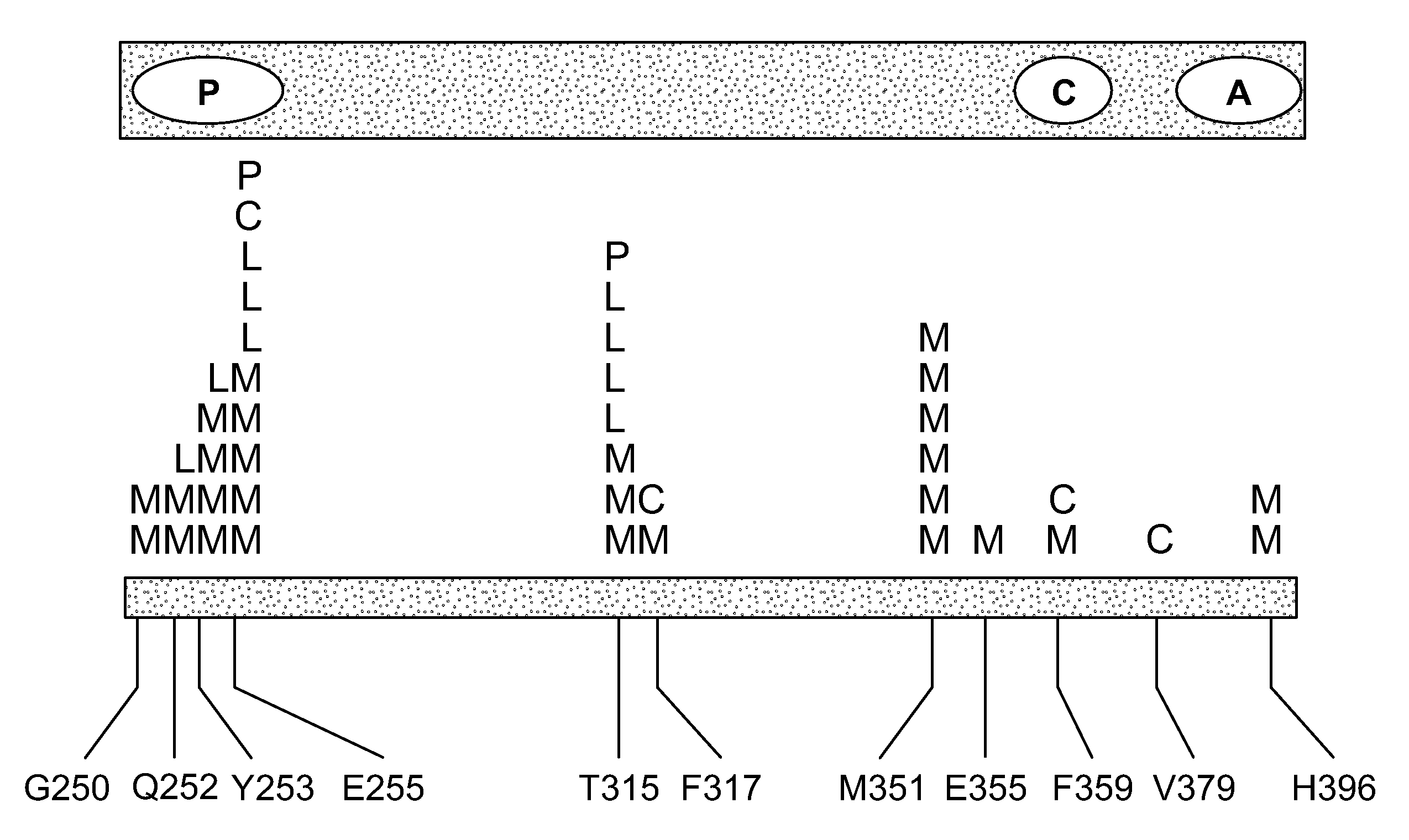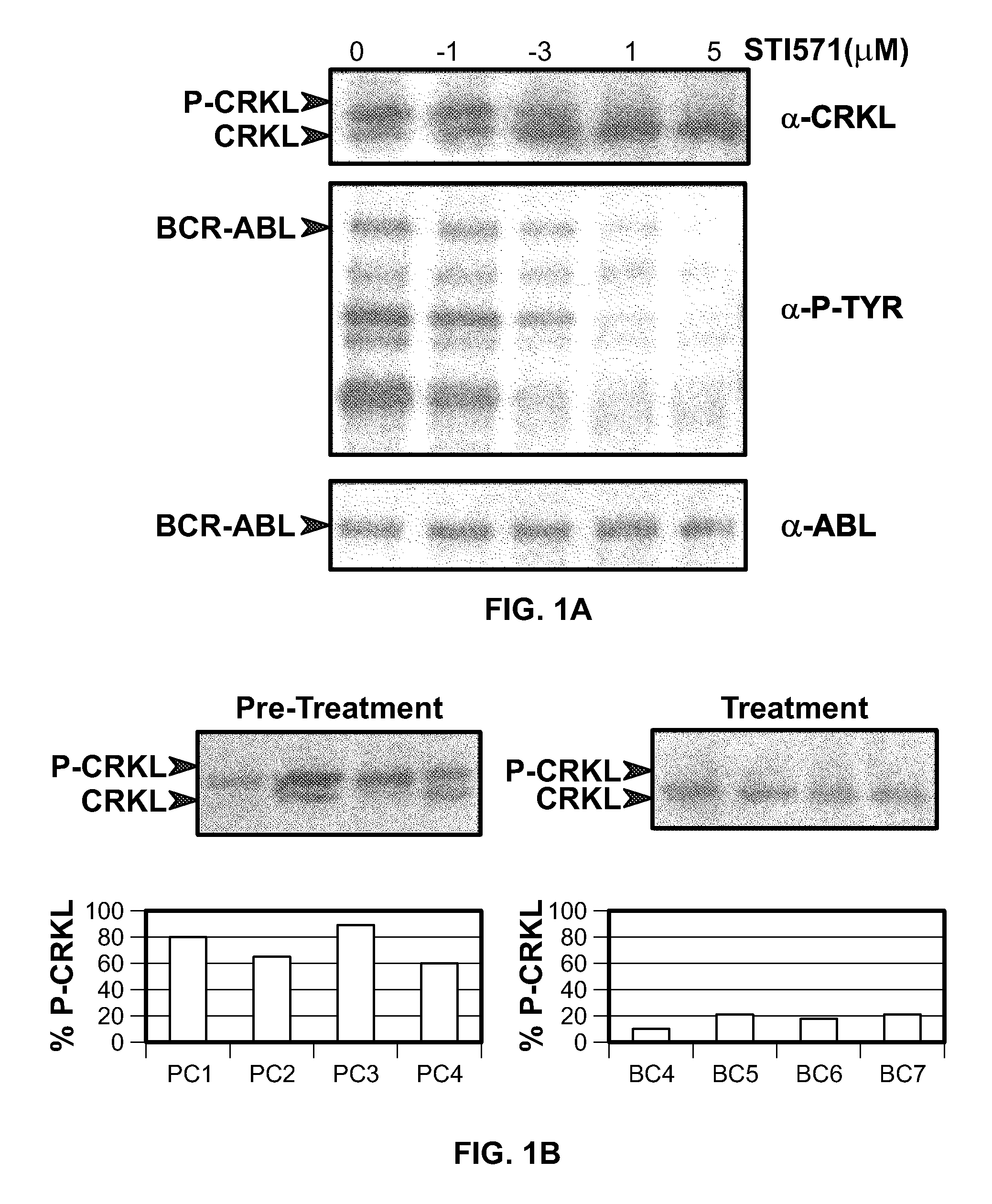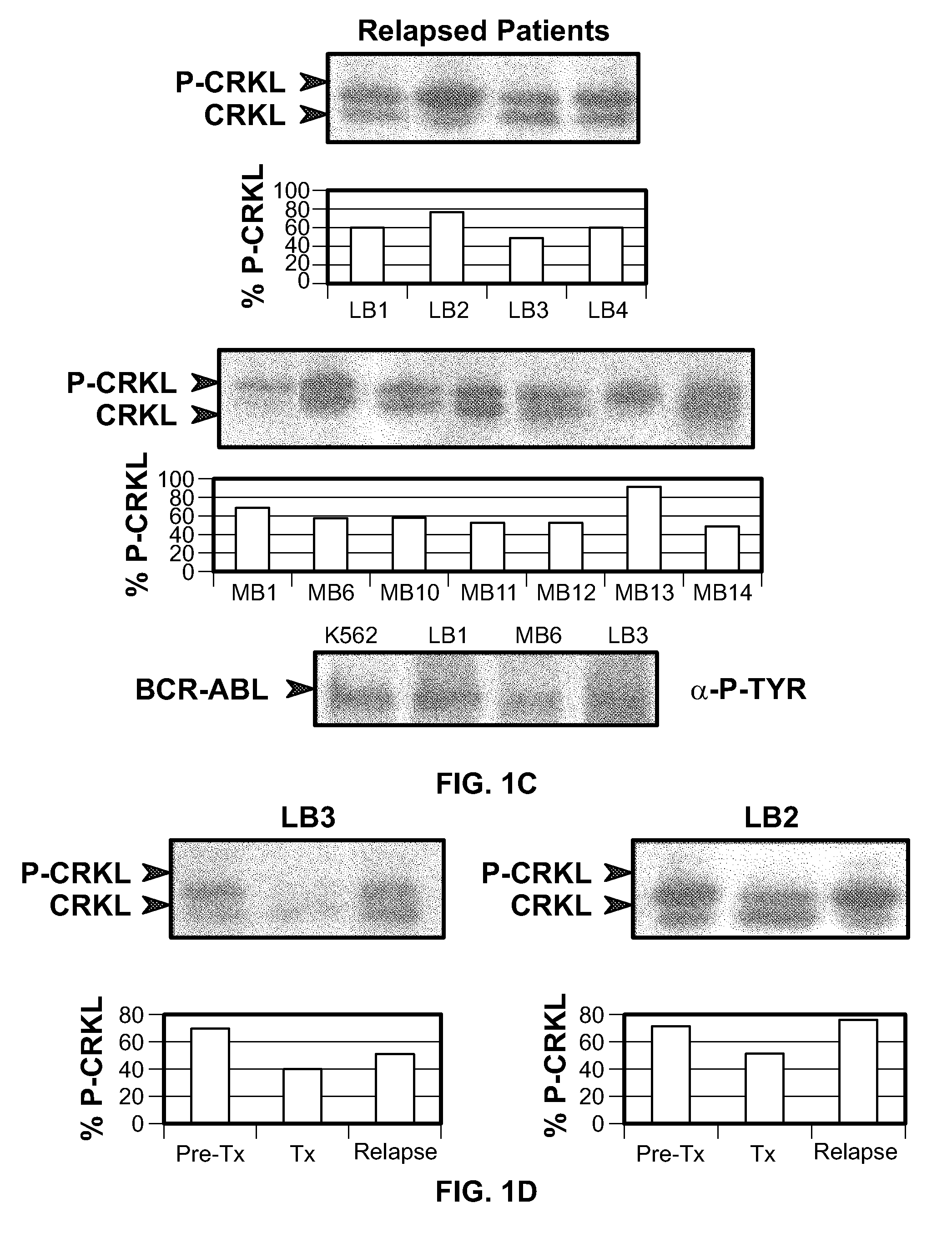Mutations in the BCR-ABL tyrosine kinase associated with resistance to STI-571
a tyrosine kinase and bcrabl technology, applied in the field of bcrabl tyrosine kinase associated with resistance to sti571, can solve the problem that the specific events associated with this resistance have not been well characterized
- Summary
- Abstract
- Description
- Claims
- Application Information
AI Technical Summary
Benefits of technology
Problems solved by technology
Method used
Image
Examples
example 1
Illustrative Materials and Methods for Examining BCR-ABL
[0182]In an illustrative strategy for examining MARS, our laboratory has embarked on a large scale sequencing project to identify mutations in the ABL kinase domain in patients with chronic myeloid leukemia. A preferred experimental strategy is to use PCR to amplify a region of the BCR-ABL transcript using primers specific to BCR and ABL, subclone this product and sequence at least 10 independent clones in both directions. This strategy allows one to quantify fluctuations in different clones from the same patient over time. Several different groups of patients have been analyzed in order to determine if the frequency and type of ABL mutation differs with disease stage or prior treatment. These groups include: chronic phase untreated with STI-571 (Gleevec), chronic phase treated with STI-571, blast crisis untreated with STI-571 and blast crisis treated with STI-571. Using this strategy we have found over 40 such mutations. Typic...
example 1a
Illustrative Methods for Examining BCR-ABL Polynucleotide and Polypeptide Sequences
[0183]Blood samples were obtained from consenting patients enrolled in clinical trials at UCLA assessing the efficacy of STI-571 in the treatment of CML. RNA was extracted using TriReagent or TriAzol. cDNA synthesis was performed using MMTV reverse transcriptase. Polymerase chain reaction (PCR) was performed using the following primers: CM10 (5′-GAAGCTTCTCCCTGACATCCGT-3′) (SEQ ID NO: 6) and 3′ Abl KD (5′-GCCAGGCTCTCGGGTGCAGTCC-3′) (SEQ ID NO: 7). The resultant 1.3 kb fragment was excised from a low melting point agarose gel following electrophoresis. A second PCR was performed on the gel-purified 1.3 kb fragment to isolate the kinase domain using the primers 5′ Abl KD (5′-GCGCAACAAGCCCACTGTCTATGG-3′) (SEQ ID NO: 8) and 3′ Abl KD. The resultant 0.6 kb fragment was ligated into pBluescript II KS+ digested with Eco RV. Bacterial transformants were plated on media containing ampicillin and X-gal. Ten whit...
example 1b
Illustrative Methods for Examining Discreet Regions in BCR-ABL
[0186]In certain contexts, it may be desirable to amplify a specific region in BCR-ABL such as one of the functional domains discussed herein. In this context, a 579 base pair region corresponding to the ATP-binding pocket and the activation loop of the kinase domain of Bcr-Abl was sequenced in the 9 patients for whom RNA was available at the time of relapse (FIG. 4A). Briefly, RNA was extracted from purified peripheral blood or bone marrow cells with Trireagent-LS (Molecular Research Center, Inc., Cincinnati, Ohio). 2 mg of total RNA was subjected to RT-PCR using Oligo dT primers. A 1327-bp cDNA fragment was amplified by PCR with a 5′ BCR-specific primer (5′-GAAGCTTCTCCCTGGCATCCGT-3) (SEQ ID NO: 6) and a 3′ ABL-specific primer (5′-GCCAGGCTCTCGGGTGCAGTCC-3′) (SEQ ID NO: 7). In two patients, the BCR-ABL fragment could not be amplified; therefore, a 579-bp fragment was amplified using an alternative 5′ ABL-specific primer (...
PUM
 Login to View More
Login to View More Abstract
Description
Claims
Application Information
 Login to View More
Login to View More - R&D
- Intellectual Property
- Life Sciences
- Materials
- Tech Scout
- Unparalleled Data Quality
- Higher Quality Content
- 60% Fewer Hallucinations
Browse by: Latest US Patents, China's latest patents, Technical Efficacy Thesaurus, Application Domain, Technology Topic, Popular Technical Reports.
© 2025 PatSnap. All rights reserved.Legal|Privacy policy|Modern Slavery Act Transparency Statement|Sitemap|About US| Contact US: help@patsnap.com



